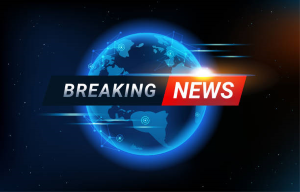Iran summons UK, France, Germany over UN closed-door meeting

Iran's foreign ministry on Thursday summoned the envoys of Britain, France and Germany over what it called a "misuse of the U.N. Security Council to hold a closed-door meeting" over Tehran's nuclear programme, Iranian state media reported.
Britain warned on Wednesday that it would trigger a return of U.N. sanctions on Iran, if needed, to prevent it from getting a nuclear weapon as the Security Council met to discuss Tehran's expansion of its stock of uranium that is close to weapons grade.
Iran has denied wanting to develop a nuclear weapon and says its nuclear programme is peaceful.
However, the International Atomic Energy Agency has warned that its production of uranium enriched to up to 60% purity, close to the roughly 90% weapons-grade level, has recently jumped.
Western states say there is no need to enrich uranium to such a high level under any civilian program and that no other country has done so without producing nuclear bombs.
The closed-door meeting at the U.N. was called by six of the Security Council's 15 members - the U.S., France, Greece, Panama, South Korea and Britain.
The U.S. mission to the U.N. said in a statement after the Council meeting that Iran was "the only country in the world without nuclear weapons producing highly enriched uranium, for which it has no credible peaceful purpose."
On Wednesday, Iran's Supreme Leader Ayatollah Ali Khamenei appeared to dismiss a U.S. proposal for negotiating over its nuclear programme.
State-run media on Thursday quoted the foreign minister as not ruling out talks.
==================================================
==================================================
China, Iran, Russia kick off talks in Beijing on Iran's nuclear issues
Senior diplomats from Iran, Russia and China gathered in Beijing on Friday for talks on Tehran's nuclear issues, Chinese state broadcaster CCTV reported, days after Tehran rejected U.S. "orders" to resume dialogue over the Iranian nuclear programme.
In 2015, Iran reached a deal with the United States, Russia, China, Britain, France and Germany and agreed to curb its nuclear programme in exchange for the lifting of international sanctions. But in 2018, Donald Trump, a year into his first term as U.S. president, pulled out of the pact.
Last week, Trump said he had sent a letter to Iranian Supreme leader Ayatollah Ali Khamenei proposing nuclear talks, adding that "there are two ways Iran can be handled: militarily, or you make a deal".
Iranian President Masoud Pezeshkian responded that he would not negotiate with the U.S. while being "threatened", and Iran would not bow to U.S. "orders" to talk.
Iran was further enraged after six of the United Nations Security Council's 15 members - the U.S., France, Greece, Panama, South Korea and Britain - held a closed-door meeting this week to discuss its nuclear programme. Tehran said the meeting was a "misuse" of the U.N. Security Council.
In the run-up to the Beijing talks on Friday - attended by the vice foreign ministers of China, Russia and Iran - China said it hoped the trilateral meeting would help create "conditions" for the early resumption of dialogue and negotiations.
Iran has long denied that it is working on developing a nuclear weapon. But the International Atomic Energy Agency warned last month that Tehran was "dramatically" accelerating enrichment of uranium to near the roughly 90% weapons-grade level.
==================================================
==================================================
- Questions and Answers
- Opinion
- Motivational and Inspiring Story
- Technology
- Live and Let live
- Focus
- Geopolitics
- Military-Arms/Equipment
- الحماية
- Economy
- Beasts of Nations
- Machine Tools-The “Mother Industry”
- Art
- Causes
- Crafts
- Dance
- Drinks
- Film/Movie
- Fitness
- Food
- الألعاب
- Gardening
- Health
- الرئيسية
- Literature
- Music
- Networking
- أخرى
- Party
- Religion
- Shopping
- Sports
- Theater
- Health and Wellness
- News
- Culture


